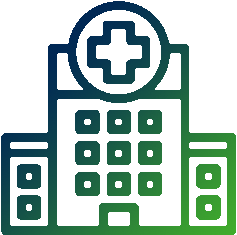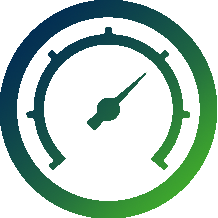Patients and health systems deserve clinicians thriving and operating at their best.
A New Kind of Clinical Decision Support System
EvidenceCare's clinical decision support tools are EHR-agnostic and content-agnostic with a focus on empowering better care decisions and improving hospital margins.
Doctors don’t need more invasive technology.
They need the right information at the right time.
Our software is designed with our end-users in mind for improved clinical workflows.

Trusted by Top Health Systems






Clinical Decision Support Tools
Of all the industries affected by the rapid development of technology over the past several decades, the field perhaps most changed, beyond tech itself, is medicine. Technology revolutionized treatments and also led to the development of resources like electronic health records (EHR), which are one of the most commonly used clinical decision support (CDS) tools. EHRs store comprehensive patient history and help doctors make better decisions, supported by historical patient data.
EHRs are one of the most important clinical decision support system examples in healthcare, because they give clinicians a full picture of who they are treating. This helps inform their decisions regarding treatments. Because EHRs exist in digital storage, doctors can access records whenever and wherever needed—they just need a smart device.
While there’s no doubt that the invention of the EHR marked the birth of one of the most critical decision support tools ever in healthcare, they’re actually just one piece of the clinical decision support tools puzzle.
EHR systems are great at storing data, but “out of the box,” they aren’t built to inform doctors about potential benefits and pitfalls of using a certain course of treatment or access historical medical data from a wide range of patients, which can be even better at delivering more precise treatment suggestions.
Luckily, today there are clinical decision support software companies, integrated in an EHR system, creating programs that can use wide swaths of historical information to better understand how medical decisions will affect a patient, and whether it’s the best course of action.
Traditional EHRs lack the capacity that these clinical decision support system software have—to offer tailored medical knowledge to doctors. Doctors who practice only using a traditional EHR usually have to rely on other clinical decision making tools when deciding about patient treatments. Despite the benefits of others tools, most require doctors to leave the EHR to use them, which create a clunky, involved process that delays treatment times and is energetically taxing.
One great option for integrated decision support tools in healthcare is a clinical decision support system like EvidenceCare, which integrates with the EHR and provides medical treatment suggestions and empowers better care decisions without obscuring the EHR and interrupting the clinical workflow.
Types of Clinical Decision Support Tools
Clinical support tools like EvidenceCare offer the benefit of utilizing both internal and external data to create a more complete picture of a patient’s medical needs. While there are other decision support tools in healthcare that have the same functionality, newer hybrid tools don’t require doctors to switch between an EHR and clinical decision support tools where they must manually input information. This makes the treatment process more seamless and precise.
There are two main types of clinical decision support tools to help doctors guide their decision-making process. They are:
-
- Knowledge-based CDS tools: These tools are pre-programmed to provide doctors answers when given patient data and information. Because they contain comprehensive information about health conditions and treatment options, practitioners can plug information into knowledge-based CDS tools and receive a suggestion for a course of treatment to doctors, based on an amalgamation of all the information given. Knowledge-based tools usually give recommendations or warnings. One of the most common knowledge-based CDS tools is a drug interactions screening. Two (or more) medications can be input into a program, in addition to conditions a specific patient has, and the program can let a doctor know whether it is safe to prescribe a combination of medications or not (or what the risks are).
- Non-Knowledge Based CDS tools: Thanks to the invention of AI, CDS tools no longer need to be pre-programmed. Non-Knowledge based CDS tools rely on AI and machine learning, which can gather enormous amounts of data and come to useful, actionable conclusions based on the information it has analyzed. These tools get smarter as more data is entered, so over time, they offer doctors decision suggestions that are increasingly accurate and helpful.
Clinical Decisions Support Tool Integrated Into EHR
Clinical decisions support systems can mean the difference between life-saving care and ineffective treatments, and it can mean avoiding unexpected side effects and unnecessary hospital and patient cost.
Just a few years ago, even doctors would have asked: what is a clinical decision support system? But now they are software platforms and programs that work together to support their decision-making process to offer the safest and most reliable care possible.
Medicine is improving thanks to clinical decision support (CDS) tools that integrate with an EHR. A clinical decisions support tool integrated into an EHR means doctors can get treatment suggestions at the speed that data transfers can work (nearly instantaneous), and they can then make evidence-based and data-backed choices regarding their patients’ care fast. The best CDS tools that integrate with EHRs are those integrated with various EHR companies, including MEDITECH, Oracle Cerner, Epic, and more.
Some clinical decision support software companies have created programs that only integrate with one type of EHR system (i.e. Oracle Cerner CDS tools only work with practices using Oracle Cerner, and MEDITECH CDS tools only work when providers access EHRs via MEDITECH). This means that if a doctor works at a practice that accesses EHRs on Epic, clinicians use CDS tools integrated in Epic, and for practices that choose to use Oracle Cerner, practitioners must use CDS tools integrated in Oracle Cerner.
However, if nurses or physicians change practices or work at multiple institutions, they may not be able to use the same CDS tool they are used to at both—and must learn to use another software program that integrates with the right EHR. Again, this becomes complex and clunky, when doctors’ energy is better used to help patients than familiarizing themselves with computer programs.
Contrary to platform-specific CDS tools, the best clinical decision support system software programs now are EHR platform agnostic. Doctors can familiarize themselves with the CDS tool once, and then use it with ease, whether they’re accessing a patient record in Epic or in Oracle Cerner.
Examples Of Clinical Decision Support Tools
As mentioned above, clinical decision support systems aren’t limited to only give doctors insight into the history of the person they’re working with. They also incorporate huge datasets stored in hospital data records and evidence-based guidelines to recommend a treatment a patient might need—or what they might be harmed by. Clinical decision support software guidance is backed by powerful computing and real clinical expertise to offer doctors smart, actionable insights about the best courses of treatment to pursue.
These more complex programs that use machine learning and patient information counter some previously problematic challenges of clinical support system software that could not function in tandem with an EHR (or only had a limited amount of information in it that was concretely input by doctors and healthcare providers) — and did not evolve over time.
Clinical Decision Support Tool Benefits
You may now know the answer to: What is a clinical decision support system? However, do you know why it is essential to use one? There are many examples of other clinical decision support tool benefits, beyond the very straightforward way they help patients and doctors with data-backed treatment suggestions, improving patient outcomes.
Some benefits of CDS tools that you might not realize when considering clinical decision support system advantages and disadvantages are:
-
- The avoidance of errors and adverse events, especially in the Emergency Department. If someone in the past has had similar characteristics or conditions to a patient and reacted unexpectedly to treatment, this can be factored in by warnings to doctors, who can then mitigate that risk by choosing a different course of treatment.
- They provide whole care teams with the same, consistent information about a patient. Nurses and doctors no longer rely on written records or their own memories to guide how they are treating a patient. They can access facts and events that are digitally recorded and see the same guiding information that all other clinicians see.
- They eliminate the need for journals, textbooks, or multiple reference points. CDS tools gather information in one place which saves memory on computers and smart devices, and eliminates the need to print, save, and store medical journals and textbooks somewhere easily accessible.
- They offer the capacity to add preventative care to the process. Rather than focusing simply on the problem that needs to be fixed, many CDS tools can remind practitioners and their patients to take preventative steps related to their condition, so they can avoid the same health issues in the future and continue healing after they’ve left the hospital or doctor’s office.
- They improve efficiency and help healthcare organizations save money since doctors do not waste time and resources on unnecessary or unwarranted treatments.
If you work at a hospital or health system with an EHR system like Epic, Oracle Cerner, or MEDITECH, and want to provide patients with better care that happens quickly and accurately, consider trying the clinical decision support system from EvidenceCare.
Our CDSS is EHR platform-agnostic and content-agnostic and minimizes the invasive technology doctors must deal with while making life-or-death decisions.
Schedule a demo with EvidenceCare today to learn more.







